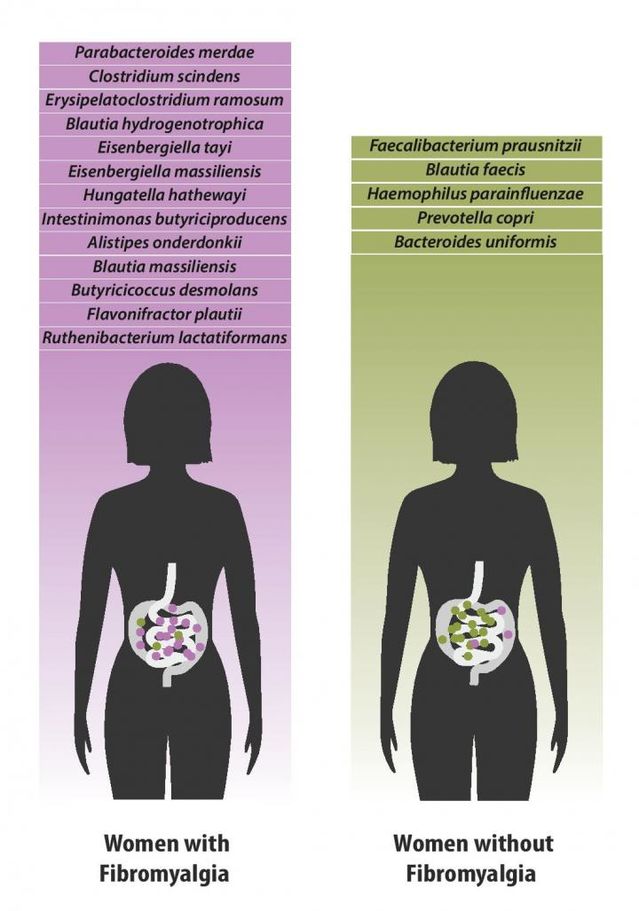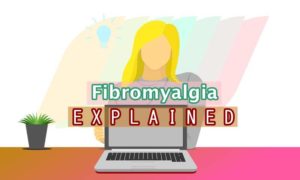Contents
Researchers have found evidence that links fibromyalgia and gut bacteria, a disease involving chronic pain and alterations in the gut microbiome.
Fibromyalgia and Gut Bacteria
Fibromyalgia affects 2-4 % of the population and has no cure at all. Signs and Symptoms include fatigue, impaired sleep, and cognitive difficulties. Widespread chronic pain is one the characteristic of the disease.
Montreal Research
In a paper published a couple of months ago, a Montreal-based research team has studied and identified, for the first time, that there are alterations in the bacteria in the gastrointestinal tracts of people suffering from fibromyalgia. Around about 15- 20 different species of bacteria were found. These species include in either greater or are lesser quantities in the microbiomes of participants suffering from the disease than in the healthy control group.
The Microbiomes of Patients
Dr. Amir Minerbi, from the Alan Edwards Pain Management Unit at the McGill University Health Centre (MUHC), and first author on the paper says
“We tried different levels of techniques, including Artificial Intelligence. All this is done to confirm that the changes we saw in the microbiomes of fibromyalgia patients were not caused by other factors. Factors such as diet, medication, physical activity, age, and so on, which are known to affect the microbiome,”
The team members also include researchers from McGill University and Université de Montréal. There were other members as well from the Research Institute of the MUHC.
Never Reported Before
Dr. Minerbi adds,
“We can say that fibromyalgia symptoms – pain, fatigue, and cognitive difficulties – contribute more than any of the other factors to the variations we see in the microbiomes of those with the disease. We have also witnessed the fact that the severity of a patient’s symptoms was linking with an increased presence or a more pronounced absence of certain bacteria. This is something which has never been identified before in the case of fibromyalgia and gut bacteria.”
Ambiguity
At this point, it stays ambiguous whether the changes in gut bacteria witnessed in patients with fibromyalgia are simply markers of the disease or whether they play a role in causing it. Because the disease involves a variety of symptoms and not simply pain. The next step in the research will be to investigate whether there are similar changes in the gut microbiome in other conditions or not. Conditions such as chronic pain, lower back pain, headaches, and neuropathic pain.
The team of researchers are keen in identifying whether bacteria play a causal role in the increase of pain and development of fibromyalgia. And whether their presence could, hopefully, help in finding a cure, as well as speed up the process of diagnosis.
What the Future Holds
Fibromyalgia is a chronic condition that has proved to not be easy to diagnose. In certain cases, patients had to wait as long as 4 to 5 years to get a final diagnosis. But this may change in the near future, hopefully.

Emmanuel Gonzalez, from the Canadian Center for Computational Genomics and the Department of Human Genetics at McGill University, says.
We have organized and took large amounts of data related to fibromyalgia and gut bacteria. This data is identifying 19 species that were either increased or decreased in individuals suffering from fibromyalgia.
By using machine learning, our computer was able to make a diagnosis of fibromyalgia. This was based only on the composition of the microbiome, with an accuracy of 87%. As we build on this first discovery with more research, we hope to improve upon this number, potentially creating a step-change in diagnosis.
Harsh Reality
Yoram Shir, the senior author on the paper who is the Director of the Alan Edwards Pain Management Unit at the MUHC and an Associate Investigator from the BRaiN Program of the RI-MUHC says:
“People with fibromyalgia suffer not only from the symptoms and pain of their disease. Many of them face hard times in accepting their disease from family, friends and medical teams because of the complexity of their symptoms. As pain physicians, our inability to help results into a sense of frustration. But fortunately, this frustration is a healthy fuel for research. This is the first evidence in the case of fibromyalgia and gut bacteria. A case that the microbiome could have an effect on diffuse pain, and we really need other ways to look at chronic pain.”
Info about the Research
156 individuals in the Montreal area were part of the research. The number of people who participated in the research who suffer from fibromyalgia was 77. They gave their stool, blood, saliva and urine samples. Some of those participants lived in the same house as the fibromyalgia patients or were their parents, offspring or siblings.
The Next Step
The researchers said ’we’d see they get the same results in another cohort, in a different part of the world. Also to do studies in animals to explore whether the presence of bacteria plays a role in the development of the disease or not.
Reference
This article related to fibromyalgia and gut bacteria link has been republished from the following source. Note: for length and content, the material may have been edited. For further information and credibility, please contact the cited source.




Pingback: Christmas Gift Ideas for People with Chronic Illness - Chronic Illness
Pingback: Fibromyalgia and Chronic Pain Syndrome - Fibromyalgia Women